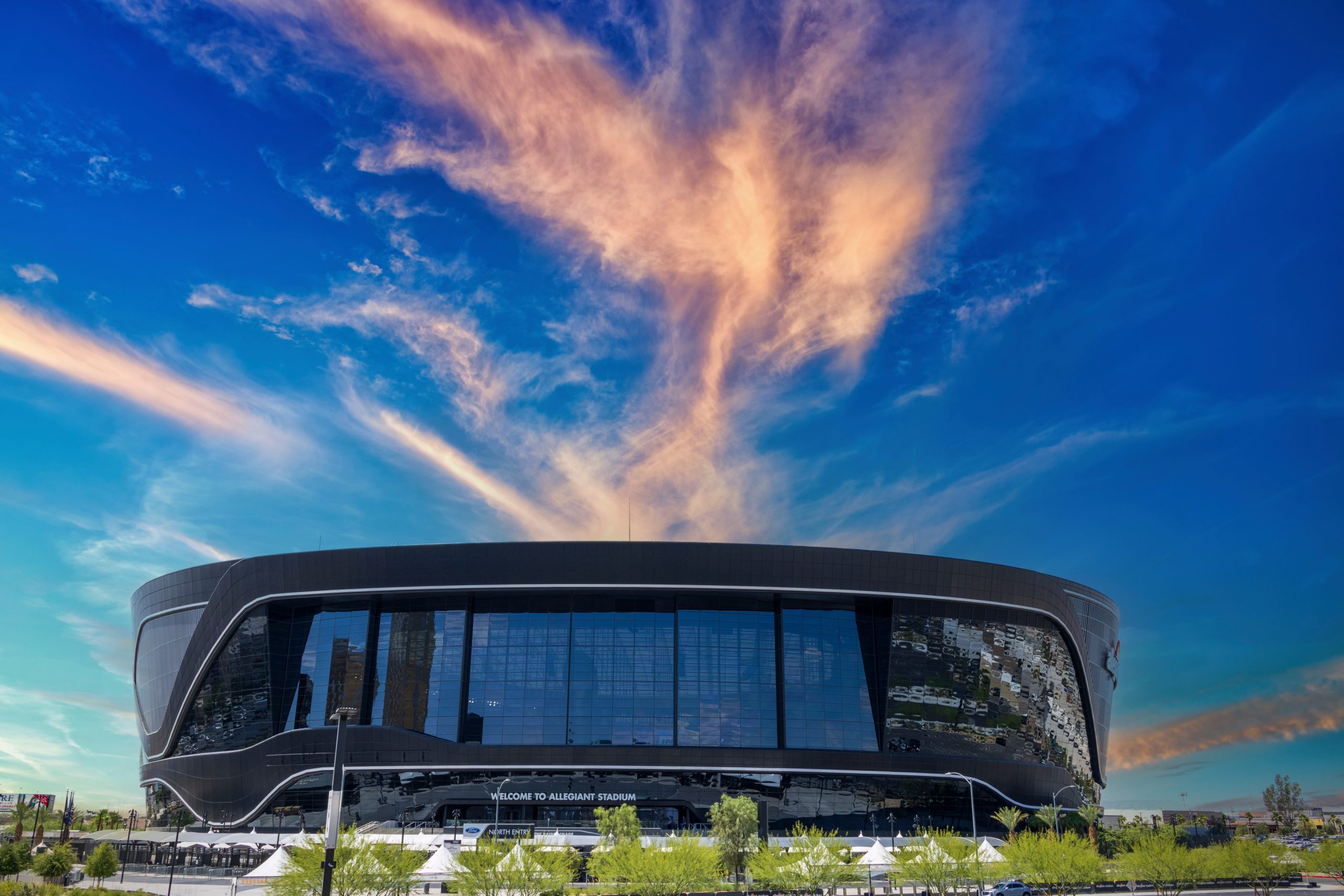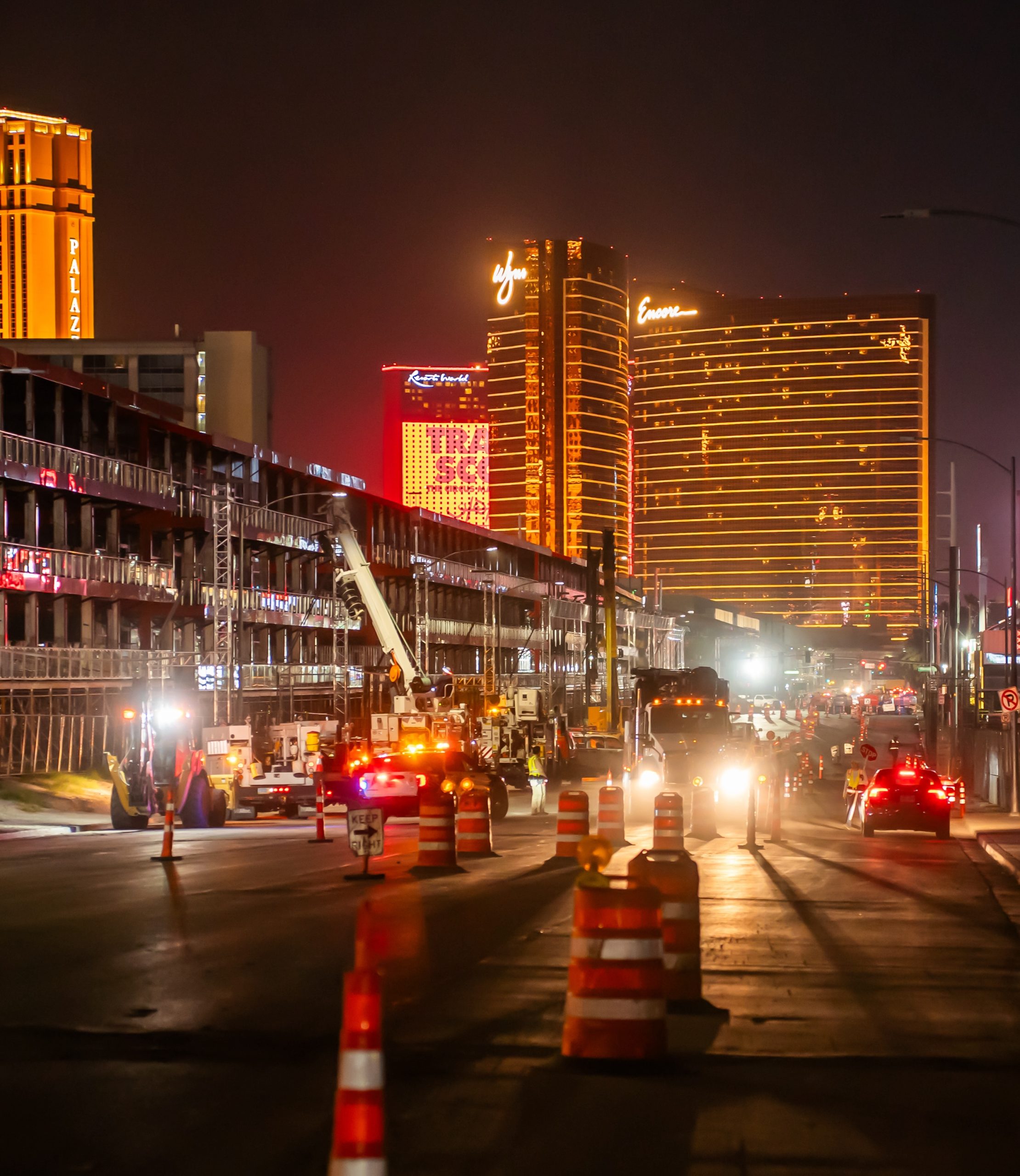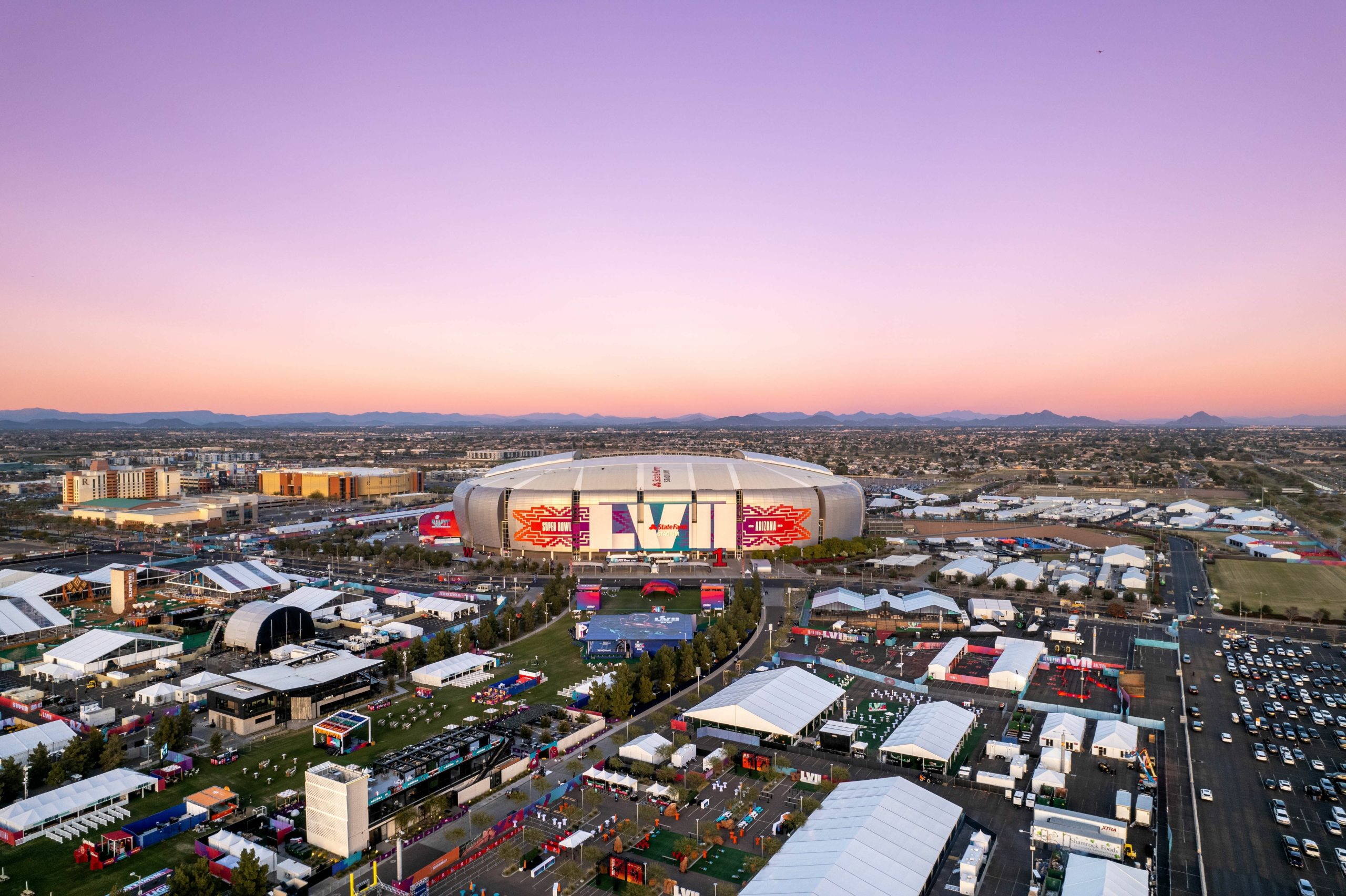By

Image courtesy of Marcus Jones via Adobe Stock
It’s early March in Las Vegas. Australia’s National Rugby League kicks off its 2024 season with a doubleheader at Allegiant Stadium, home of the NFL’s Raiders. Barely a mile’s walk down Las Vegas Blvd., Madonna performs for the second consecutive night at T-Mobile Arena, while U2 continues its residency at The Sphere. The following day, a NASCAR race revs up at Las Vegas Motor Speedway, while Rafael Nadal and Carlos Alcaraz compete in The Netflix Slam at Michelob Ultra Arena at Mandalay Bay.
For most cities, hosting this many major events in a short amount of time in a concentrated area is the culmination of years of planning, coordinating, and organizing. For Las Vegas, it’s just another weekend.
“No other city is like Las Vegas in that we’re built as a platform to host events,” says Steve Hill, CEO & President of the Las Vegas Convention and Visitors Authority. “That’s what we do.”
Home to an estimated 665,000 residents, Las Vegas thrives on tourism so much so that Nevada doesn’t have a state income tax. Instead, the state relies heavily on revenue from high sales taxes on everything from groceries to clothes, “sin taxes” on alcohol and gambling, and taxes on casinos and hotels.
Welcoming an estimated 300,000 visitors a day, Las Vegas has been further buoyed by an increased sports presence in the desert. Thanks in large part to the repeal of the Professional and Amateur Sports Protection Act (PASPA) in 2018 which permits sports betting on a state-by-state basis, Sin City has evolved into Sports City with the arrival of the Golden Knights (NHL), Raiders (NFL), Aces (WNBA) and Desert Dogs (NLL), with franchises like the A’s (MLB) planning to relocate from Oakland. There are also talks of potential MLS and NBA expansion.
Not only has Vegas become a hotbed for pro sports franchises, but the Entertainment Capital of the World has hosted major sporting events from the recent Super Bowl LVIII to the Formula 1 Las Vegas Grand Prix, WWE SummerSlam (2021), and the NFL Draft (2022). Allegiant Stadium will be the site for the 2025 NCAA College Football Playoff National Championship as well as the 2028 Division I Men’s Basketball Final Four and National Championship.

Image courtesy of dima via Adobe Stock
Unlike other locales that may need to build or revitalize current infrastructure to accommodate so many visitors and events, Las Vegas is primed for such a steady flow since tourism is its lifeblood. Outside of any obvious disruptions from closing down The Strip for major outdoor events like the Las Vegas Grand Prix, Hill said one of the main issues facing the city is ensuring there’s enough support staff, particularly among security and law enforcement, to guarantee public safety during these major sporting events.
With so much already in place, it was a bit of an anomaly that it cost $500 million to build the necessary infrastructure to host the first F1 race in Vegas since 1982. But the investment certainly paid dividends as more than 300,000 attendees spent $500+ million with a total impact of $884 million and more than $60 million in visitor tax revenue. With a 10-year agreement in place, the LVGP is only expected to grow and create further positive impact on the city and surrounding area.
“We have to continue to grow the infrastructure to keep up with the growth of the events,” Hill said. “The tourism industry here overperforms when it comes to generating tax revenues. … But you have to reinvest some of that to keep up with the growth.”
Certainly no stranger to being the epicenter of the sports world, New York City will host eight matches, including the Final, of the 2026 FIFA World Cup.
Two years out from welcoming the biggest sporting event on the planet, governmental leaders, agencies and the NY/NJ World Cup Host Committee are focused on ensuring infrastructure, transportation and security efficiencies for the tournament, according to Host Committee Co-Host City Managers Lauren LaRusso and Bruce Revman.
“We have demonstrated that our region can execute smoothly on even the biggest events and our public transit system can seamlessly move hundreds of thousands of eventgoers,” LaRusso and Revman said in a joint statement. “NY/NJ has hosted countless major events—cultural, political, and sporting events.
“In fact, the coordination between New York and New Jersey is seen as a model for major events around the country, and local officials regularly advise other cities on their planning.”
The eight World Cup matches at MetLife Stadium are projected to generate more than $2 billion in economic impact for the NY/NJ region and support more than 14,000 jobs. The tournament is also expected to bring more than 1 million visitors to the region, roughly half of whom will be non-ticket holders.
It’s not just large markets that benefit from hosting large-scale sporting events. Smaller cities like Frisco, Texas, also reap the benefits.
Part of the Dallas-Fort Worth metropolitan area, Frisco has been home to the NCAA Division I Football Championship Subdivision title game since 2010 and the Frisco Bowl since 2017.
Both played annually at Toyota Stadium, home of FC Dallas (MLS), the most recent Frisco Bowl between Marshall University and University of Texas at San Antonio brought in an estimated $1.9 million in direct economic impact.
“When (visitors) leave here with a favorable opinion of Frisco, it definitely will pay dividends for us on the tourism and economic development front for years to come,” Visit Frisco director of sports and events Josh Dill told The Frisco Enterprise.

Image courtesy of Wirestock via Adobe Stock
Home to major annual sporting events and frequent marquee ones, Phoenix is becoming another go-to desert destination for sports.
With Super Bowl LVII under its belt, Phoenix and the surrounding cities of Scottsdale and Glendale will welcome the NCAA Men’s and Women’s Basketball Final Four championships in 2024 and ’26, the 2024 WNBA All-Star Game, and the 2027 NBA All-Star Game.
These major sporting events complement its annual anchors of the Phoenix Open and MLB Cactus League Spring Training.
“The City of Phoenix and our official host committees for our mega-events host business and community outreach meetings on potential impacts such as crowd and traffic management, connecting event organizers with local businesses, sustainability and waste management, airport staffing, emergency services coordination and the lasting legacy an event has on our city and region,” said Chris Miller, Visit Phoenix Corporate Community Manager. “These committees provide opportunities for community members to voice concerns and update the public on events surrounding any events.”
The positives and financial impact of hosting major sporting events that benefit the state, city, surrounding region, and local businesses seem to outweigh any potential inconveniences and negatives.
Super Bowl LVII brought in $726 million to Arizona’s GDP thanks to $221 million in direct visitor spending. Last year’s Cactus League Spring Training generated an estimated $710.2 million in economic impact for the state.
“These events certainly raise the amount of people that come through our venues, but we do what we can to provide a fantastic experience so they do come back another time,” said Lissa Drussa, spokesperson for the Scottsdale-based Riot Hospitality Group. “What is good for our venues is good for Scottsdale as a whole.”
Magazine
Playmaker Events
Connect with playmaker